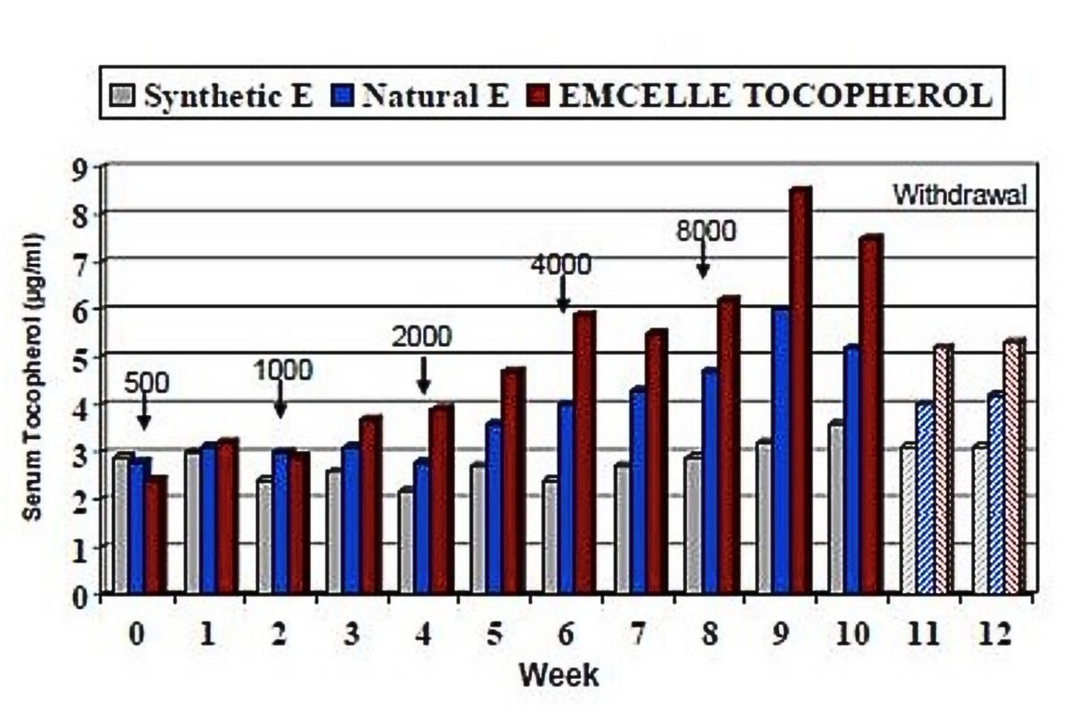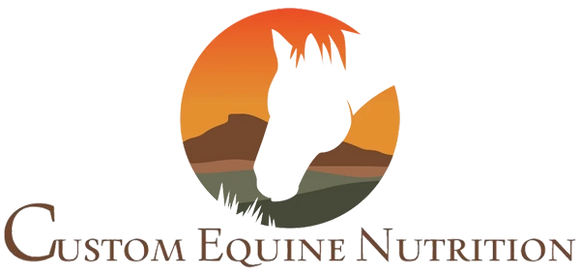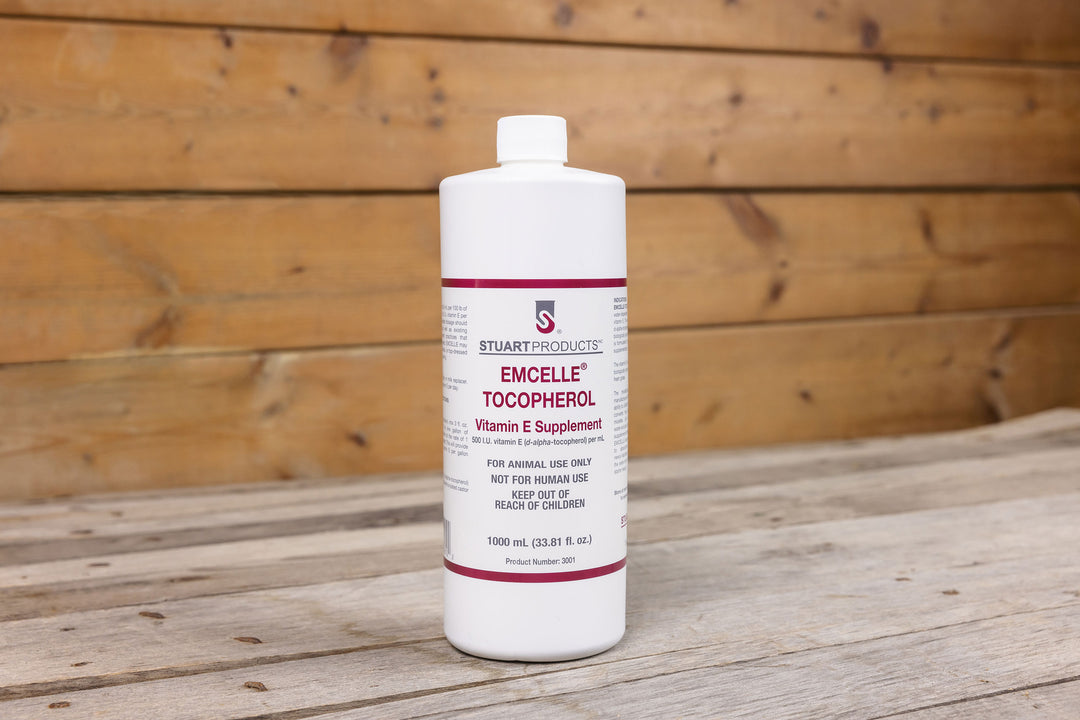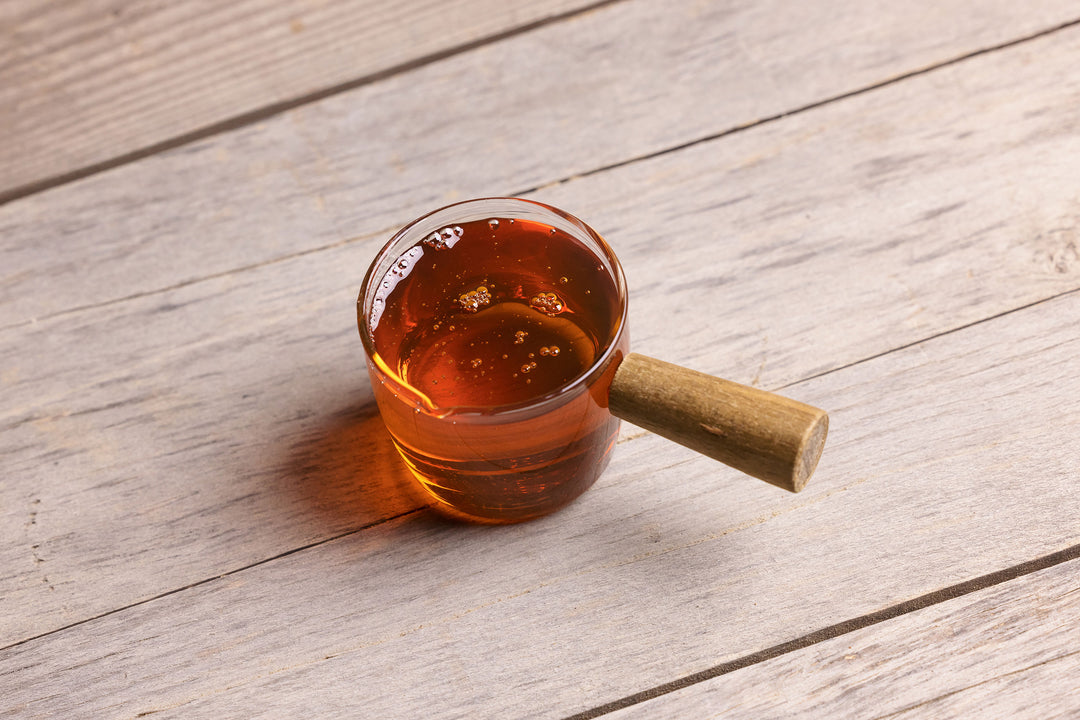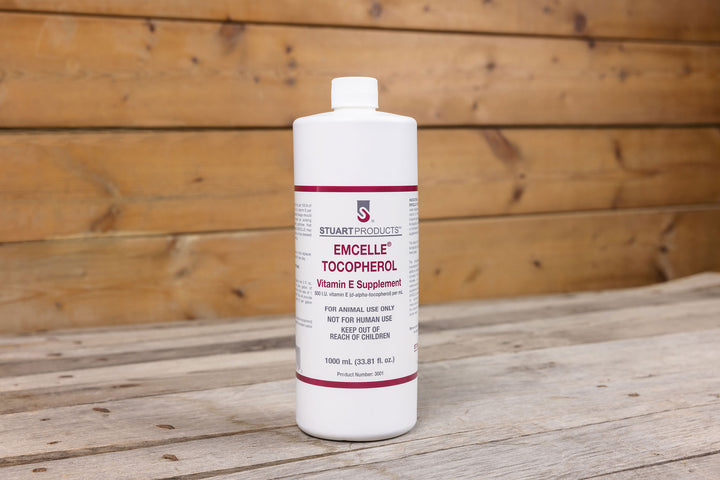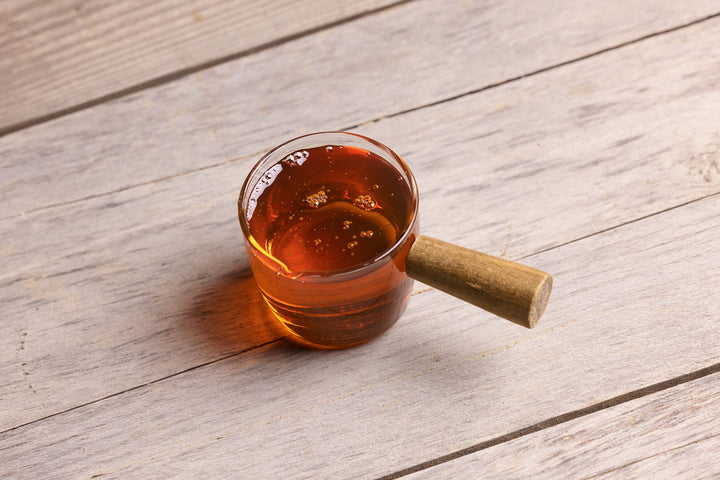| 1ml provides 500iu |
| 1 pump (4ml) provides 2,000iu |
| 1 bottle provides 250 servings at 2,000iu |
| Cost per 1,000iu = 24 cents |
| Cost per 2,000iu = 48 cents |
Insert pump slowly to avoid spillage. Top-dress onto feed at time of feeding. Dose is based on individual horse. Most 1,000lb horses should have 2,000iu (1 pump) per day. Others may need between 2,000-10,000iu (Vit E deficiency, seniors, heavy work load, neurological disorders etc.).
Store at room temperature and avoid exposure to excessive heat, light or freezing.
Benefits
Vitamin E is an essential nutrient for horses, meaning they can not manufacture it on their own and it needs to be supplied in their diet. Quality pasture provides Vitamin E, but when pasture is limited or not available it needs to be supplemented. Vitamin E helps your horse fight the many effects of free radical production that can damage membranes and components of cells.
Benefits
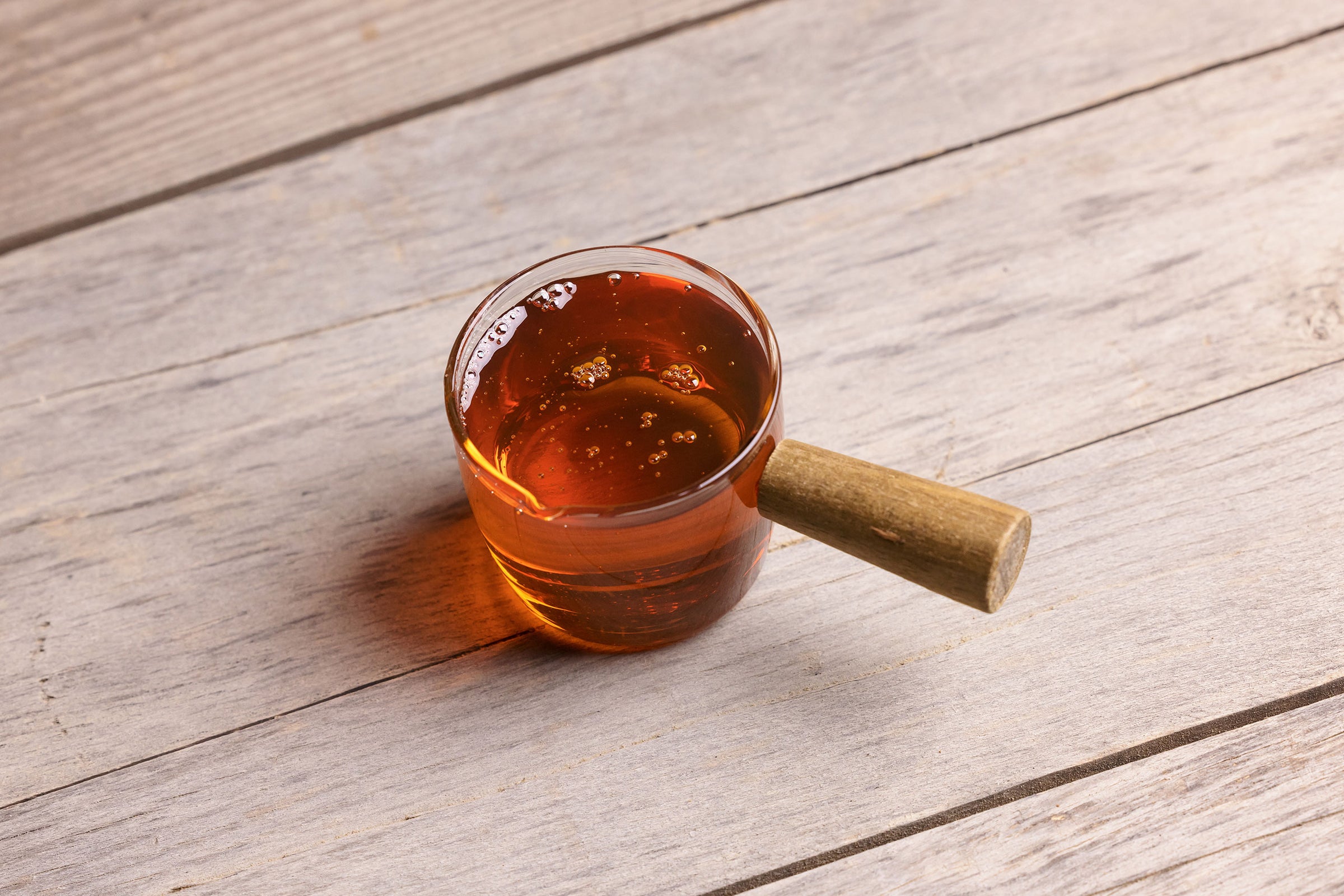
Natural vs Synthetic Vitamin E
There are two forms of Vitamin E, synthetic and natural. The natural form is what your horse receives from fresh pasture. Natural Vitamin E is twice as bioavailable as synthetic. Natural Vitamin E can go through a process called "micellization" which converts it from a fat-soluble vitamin to a water-soluble vitamin. This allows for more efficient absorption into the bloodstream from the digestive tract, making it six times as bioavailable.
Kane, E., 2004. Vitamin E is essential equine nutrient. DVM Magazine, May 2004. p. 10E-15E.
Free Pump Included with Purchase
